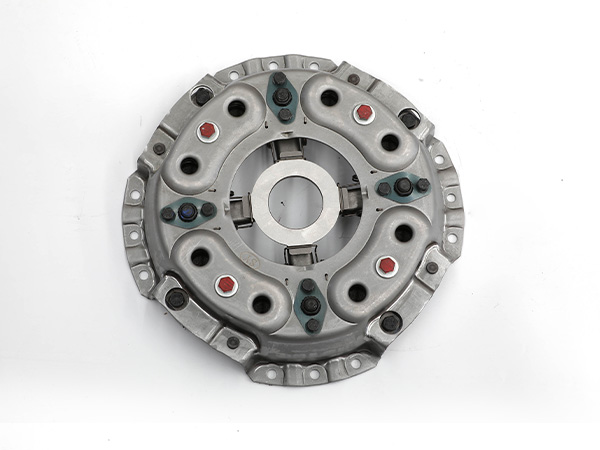How does the tractor clutch system work?
The clutch generally exists in the gearbox of the tractor and plays the role of power separation. In a fuel vehicle, the heart of the power is the engine. When the power output from the engine is to be transmitted to the wheels, it must pass through the gearbox and the drive shaft in the middle. We can call this transmission chain the power transmission system. Then the clutch is located at the head end of the gearbox, and when it is engaged, it allows the transmission system to transmit power smoothly; when the clutch disengages, it cuts off the power transmission from the engine to the wheel end.
So why do you need to cut off the power from the engine to the wheel end? This is mainly related to the working characteristics of the engine. Like a normal engine, there will be a minimum speed requirement, that is, the lowest crankshaft rotation speed for the engine to work smoothly. For example, the minimum speed of the four-cylinder engine is about 500 rpm or more, and the three-cylinder engine is about seven or eight hundred rpm. Below this value, the engine is likely to stall. Therefore, when our car is stationary, the engine should also be kept above this minimum speed. At this time, it is necessary to have a power separation device to realize the connection and separation of power.
On the whole vehicle, the tractor clutch system can be roughly divided into two parts: the control system and the clutch. The control system is the clutch pedal that we operate with our feet, plus a set of transmission devices to transmit the action of the clutch pedal to the clutch. The clutch is a device used to realize the transmission and interruption of engine power.

Let’s talk about several forms of the clutch system. Among them, the control system generally has three forms, rod-type control system, zipper-type control system and hydraulic control system.
Like the rod system, which can be seen on previous tractors and old heavy trucks, the transmission device in their middle is composed of connecting rods. The transmission efficiency of this system is relatively low, the arrangement of the connecting rod is also relatively difficult, the space required is relatively large, and the stroke of the entire pedal will be relatively large. Therefore, the application of the stick control system is relatively limited.
The second type is the zipper control system. It transmits the operation of the pedal to the clutch through a zipper in the middle. This is a similar principle to the handbrake braking mentioned in the previous explanation of the braking system. Although the zipper system is more flexible in terms of spatial arrangement, its transmission efficiency is not high, and its service life is relatively short.
…
Details can be accessed by clicking here:https://www.syclutch.com/personal/principle-of-tractor-clutch-system.html


-80x80.jpg)